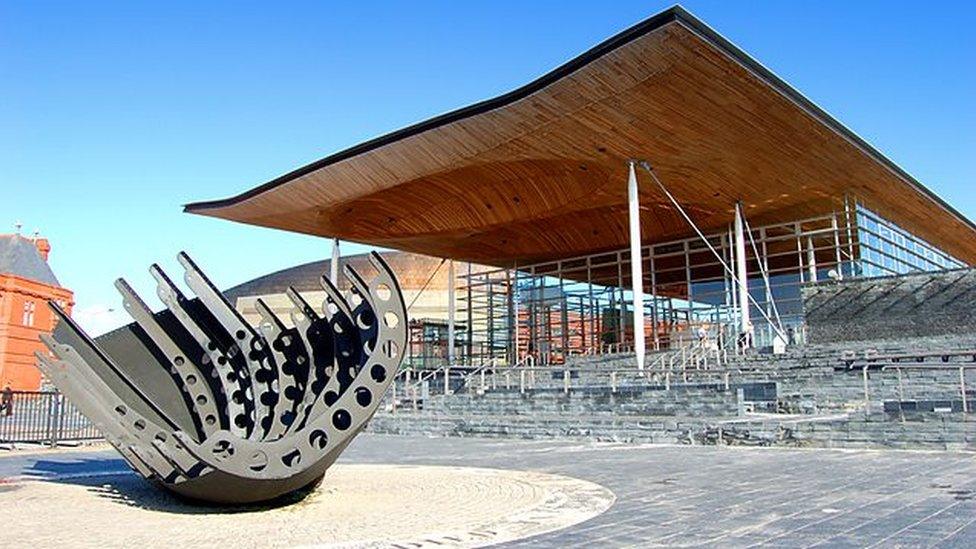Return of the Wales Bill in Queen's Speech
- Published
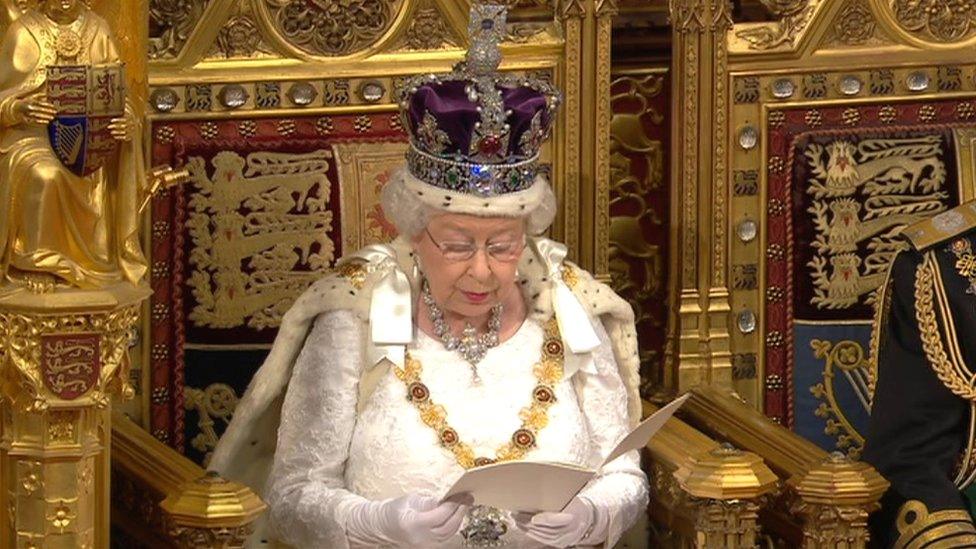
Revised plans for the future of Welsh devolution will be presented to MPs in the next year, the Queen's Speech has confirmed.
The Wales Bill aims to grant the Welsh Assembly new powers over energy, transport and elections.
A draft version of the bill was dogged with controversy and the UK government has promised significant changes.
Labour's Shadow Welsh Secretary Nia Griffith said there should be no "unnecessary delays" to the bill.
Opening the new parliamentary session on Wednesday, the Queen said: "My Government will continue to work in cooperation with the devolved administrations to implement the extensive new powers in the Scotland Act and establish a strong and lasting devolution settlement in Wales."
Alun Cairns, Secretary of State for Wales, said he plans to discuss the bill with First Minister Carwyn Jones, and added: "The Wales Bill will be published as early as possible in the parliamentary session."
Plaid Cymru Westminster leader Hywel Williams criticised UK ministers for providing what he called "one vague sentence on a Wales Bill that has already been announced".
The Wales Bill is an attempt to re-write how Wales is governed by defining what is under the control of Westminster, known as the reserved powers model.
The current system defines what is under the assembly's control, with everything else assumed to lie with the UK government.
The legislation was previously announced in May 2015's Queen's Speech, but the draft version, published in October, attracted widespread criticism that it could actually reduce the assembly's powers.
A final version was due to be presented to Parliament by March, but former Welsh Secretary Stephen Crabb - since replaced by Alun Cairns - paused the process until the summer.
Mr Crabb said the UK government would overhaul the bill, saying there were areas which needed "significant and substantial changes".
It is not expected there will be detail on what may be in the new version for another few weeks.
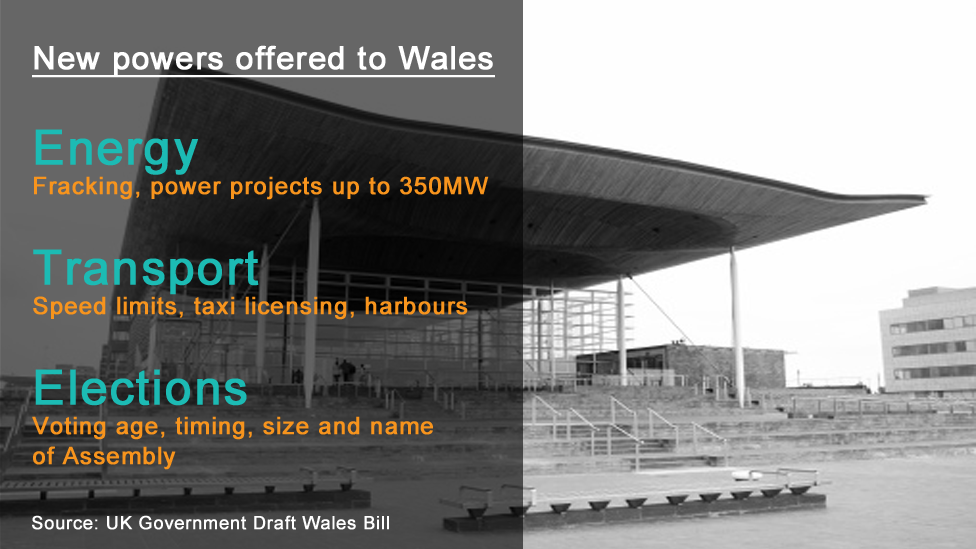
Ms Griffith said: "I want to see a bill that is workable that we can get behind, but I don't want to see any unnecessary delays."
The Llanelli MP added: "As I understand it, some of the major difficulties with this bill are being tackled and there have been ongoing talks between the secretary of state and the Welsh Government."
Welsh Liberal Democrat leader Mark Williams said he hoped the UK government "will have taken on the cross-party concerns and brings a bill forward which ensures a clear and coherent political settlement for the people of Wales".
The Queen's Speech, read at the state opening of parliament, is drawn up by the UK government and outlines the government's policies and proposed programme for making new laws in the new parliamentary session.

Analysis by David Cornock, BBC Wales parliamentary correspondent
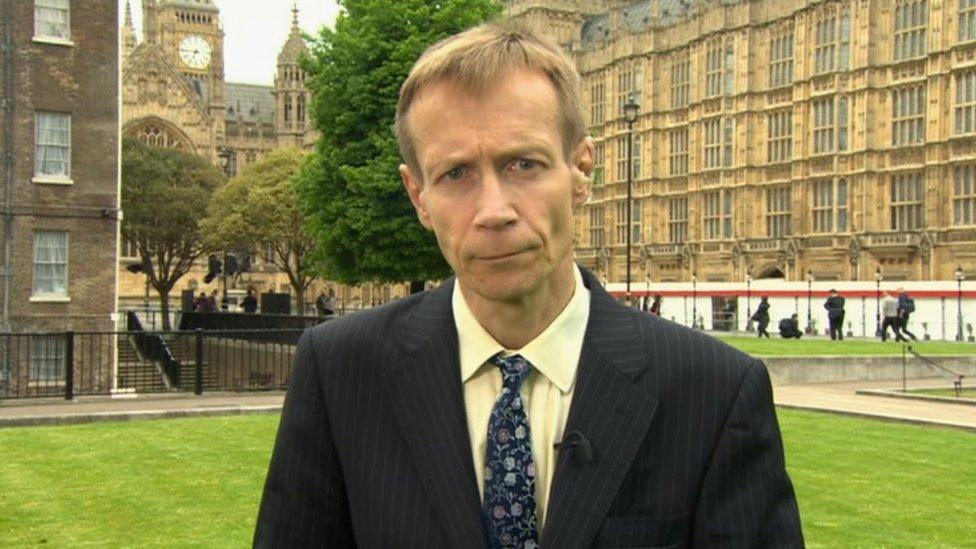
A commitment to a "strong and lasting" devolution settlement is becoming as regular a feature of the Queen's Speech as the ceremony that surrounds it.
This is what she said last year: "My government will also bring forward legislation to secure a strong and lasting constitutional settlement, devolving wide-ranging powers to Scotland and Wales."
That ushered in the draft Wales Bill, which didn't survive pre-legislative scrutiny by MPs, AMs and academics.
So much for George Osborne's 2015 election pledge: "Within 100 days of coming back into office we will have Welsh legislation through parliament to give Wales more control over its own future...."
So here we are again, although we may yet see a revised Wales Bill within 100 days. The UK government has already signalled its intention to compromise , externalon the more controversial aspects of the draft bill.
But we can still expect arguments over the exact powers to be transferred to Wales and a continuing debate over how "strong and lasting" the new settlement will be.
- Published18 May 2016
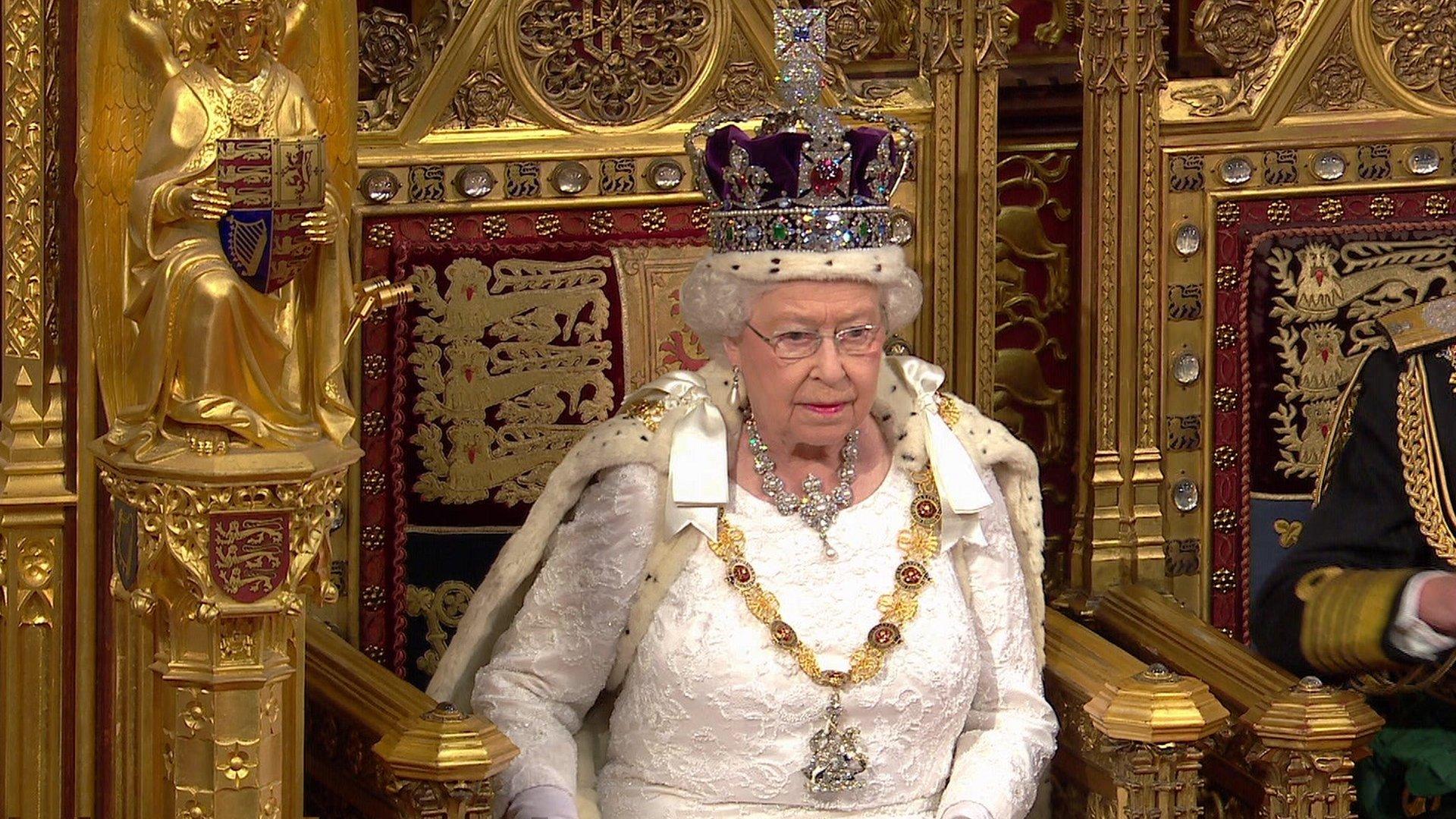
- Published7 March 2016
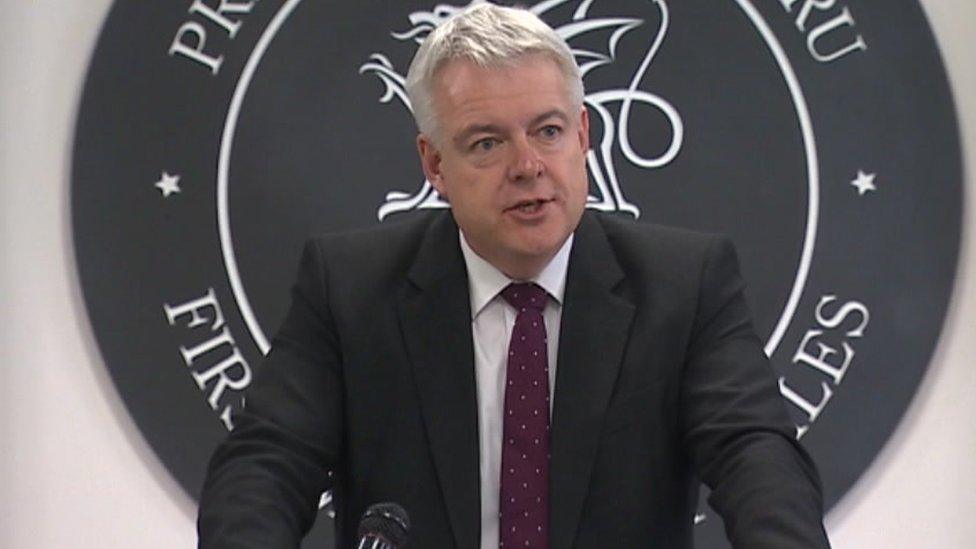
- Published29 February 2016

- Published29 February 2016
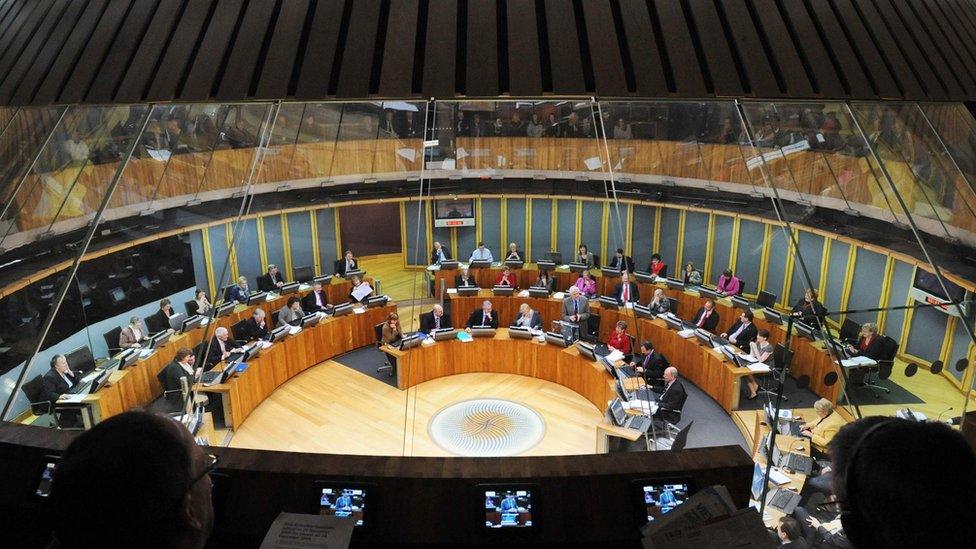
- Published28 February 2016
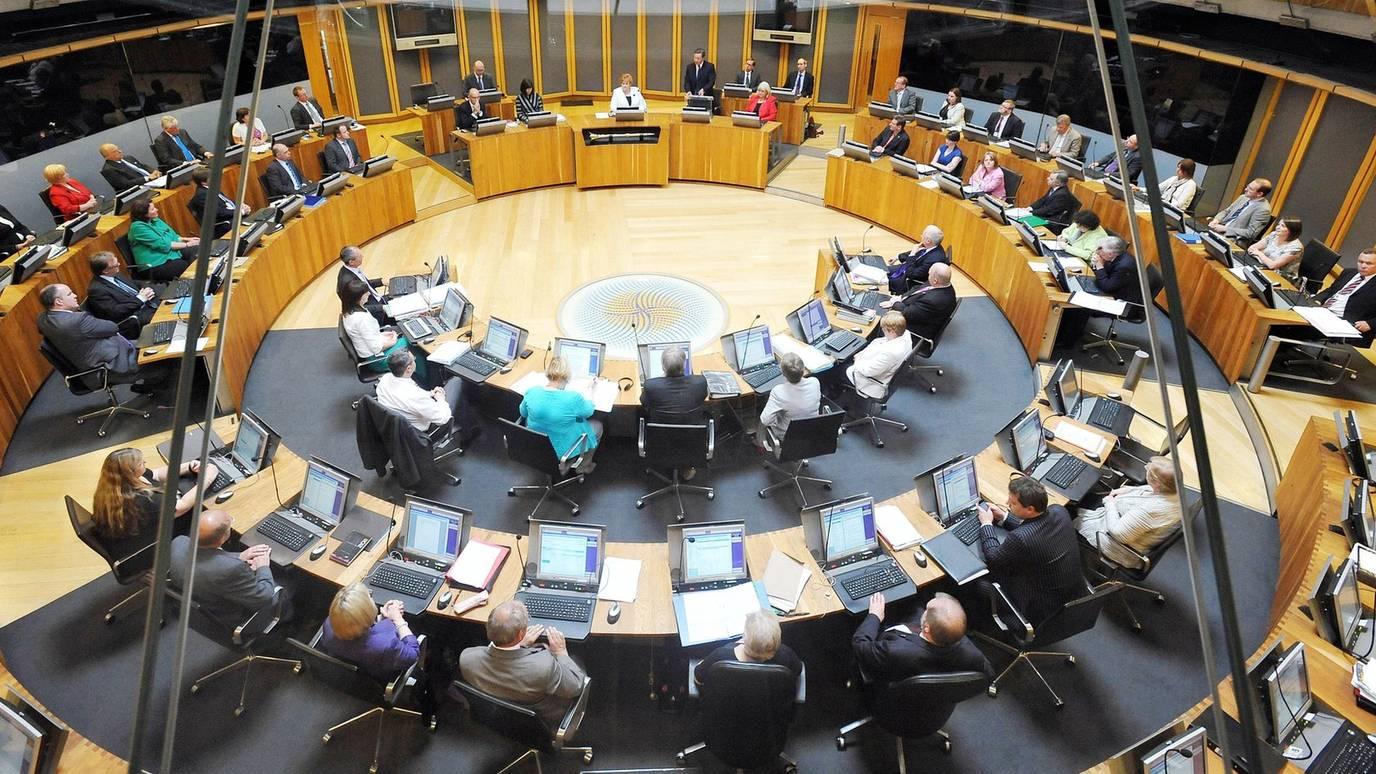
- Published20 October 2015
